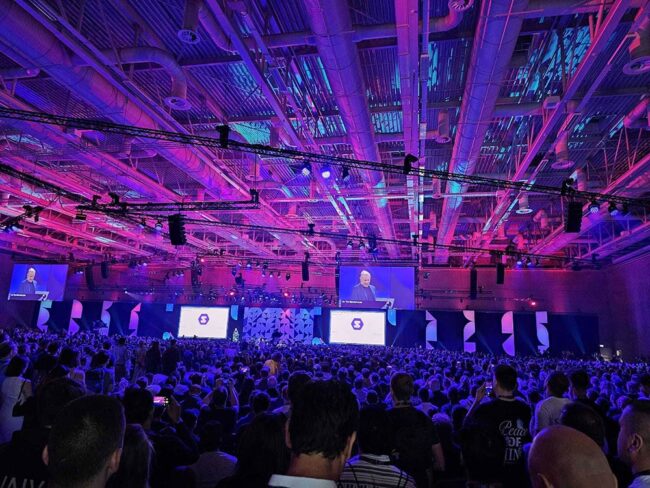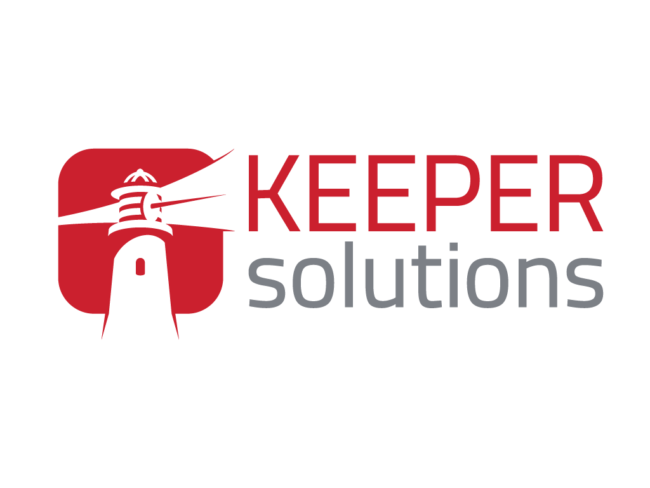Introducing Keeper Solutions Boot Camps
Q&A with Keeper Solutions CTO, Nick Holme

In January, Keeper Solutions CTO, Nick Holme, headed a new boot camp initiative from Keeper Solutions. The development boot camp, which is currently underway, was designed to help young software engineers to immerse themselves in real-life projects.
Over the course of the boot camp, the participants get to experience the ins and outs of software development. Part of the course also sees graduates actively participate in Keeper’s Research & Development projects.
Recently, we caught up with Nick to ask him a little more about the boot camp and what’s involved.
Could you tell us a bit about this new initiative from Keeper Solutions?
The idea was to get some folks that are new to programming, or who have recently graduated, and to expose them to what it’s like to work on a real development project. Coding is an important skill but in a real project there are many other skills which developers need to be familiar with, in order to be efficient and effective.
How long is the programme running for?
The boot camp includes two weeks of full-time dev work. Participants at this current boot camp, which we are running right now, have been lucky enough to enjoy a third week, where we’ve worked on polishing some aspects.
Are there more boot camps planned?
Yes, this one was focused on web development with Python. I would like to do one with Node and JavaScript. I would also like to do a third boot camp with either Rust or Golang programming languages.
Is the programme done remotely or are there in-person events?
Currently our boot camps are fully remote. However, when things settle down a bit, it would be fun to do an in-person event.
Can you tell us a little bit about what graduates learn during the boot camp? What projects will they be working on?
So often graduates or people new to programming have focused on tutorials, or writing code and algorithms and then maybe creating a small application. Those participants would not have contributed in a team, to a repository or worked on resolving git conflicts or doing pair programming.
These students are left unfamiliar with agile project management methods, Kanban boards, stand-ups, meeting agendas and minutes, deployment-to-production, test driven development approaches, continuous integration, and steps to evaluate 3rd party packages. These are all essentially parts of being an effective engineer.
In the beginning of this course, we went through best practice patterns, picking out a web framework. We then implemented parts of it. Then, on the final day of week one, the students were given one day to deliver a web app, which the whole company was invited to come and view. So, no pressure!
This is what we do in the boot camp. It’s real dev, real delivery, real fun.
In the latter end of the programme graduates actively participate in some of Keeper’s Research & Development projects. Could you tell us a bit about these projects? Are they running all year round?
We have some internal projects. These are applications which are either made to improve or facilitate our business. These include applications such as Keeper Profiles, our virtual reality rooms and our employee reward project called Keepr.io.
The VR room is actually being used by some customers in Ireland to showcase their product offerings. We are also putting a lot of effort into our Tokens project, which is akin to a rewards program which allows companies to engage, retain and reward its people.
Keeper Solutions recently partnered with the Immersive Software Engineering Programme at University of Limerick, a first-of-its-kind in Ireland. Why are these types of immersive experiences held in such high regard by Keeper Solutions?
We’ve had some great candidates come through from the university who were able to contribute to our growth. Programmes like UL’s ISE programme allows us to get to know some of the people and develop trust.
At the beginning of the programme, we assess candidates’ interests and we try to allow them time to work in areas they are interested in while also being exposed to how real projects work. Students leave us with invaluable experience in real software development, solving problems and interacting with teams in different time zones and cultures. For those that match our company culture, we let them know our door is always open!
In recent times, the company has launched Keeper Tokens, to help attract and retain top talent. Keeper has also partnered with UL on the aforementioned course and now the boot camp. Could you speak to the importance of these types of initiatives?
Employees of Keeper earn tokens monthly based on seniority and tenure which allows them to participate in the growth of the company. We believe this is a unique offering. It was developed initially for internal use but part of the latest work has been to make it available as an enterprise SaaS platform.
It stems from our observation that often brilliant developers help launch a start-up but do not get to participate in the growth of that company. So we wanted to change that. We launched the internal MVP in Aug 2021 on our 10 year anniversary.
Tokens for Enterprise will enter Beta testing in Q1 of 2022.
Are there any other initiatives from Keeper Solutions that are coming down the track?
Last year we more than doubled the size of our company. Although we need to keep focused on delivery and continue growth, this type of rapid growth exposes internal processes that could be improved. Anything that is very manual and requires a lot of collaboration within Keeper is a target for optimisation. It’s kind of like how Slack was designed to solve an internal communications problem.
We hire super smart people and that combined with our firm belief in ‘Kaizen’ and the ‘Eat Your Own Dog Food’ approach means that we’d be doing ourselves a disservice by not engaging in these types of creative initiatives.
Check Out Some Other Innovations From Keeper Solutions
In August, Keeper Solutions celebrated 10 years in business and we marked the occasion in a very special way.








